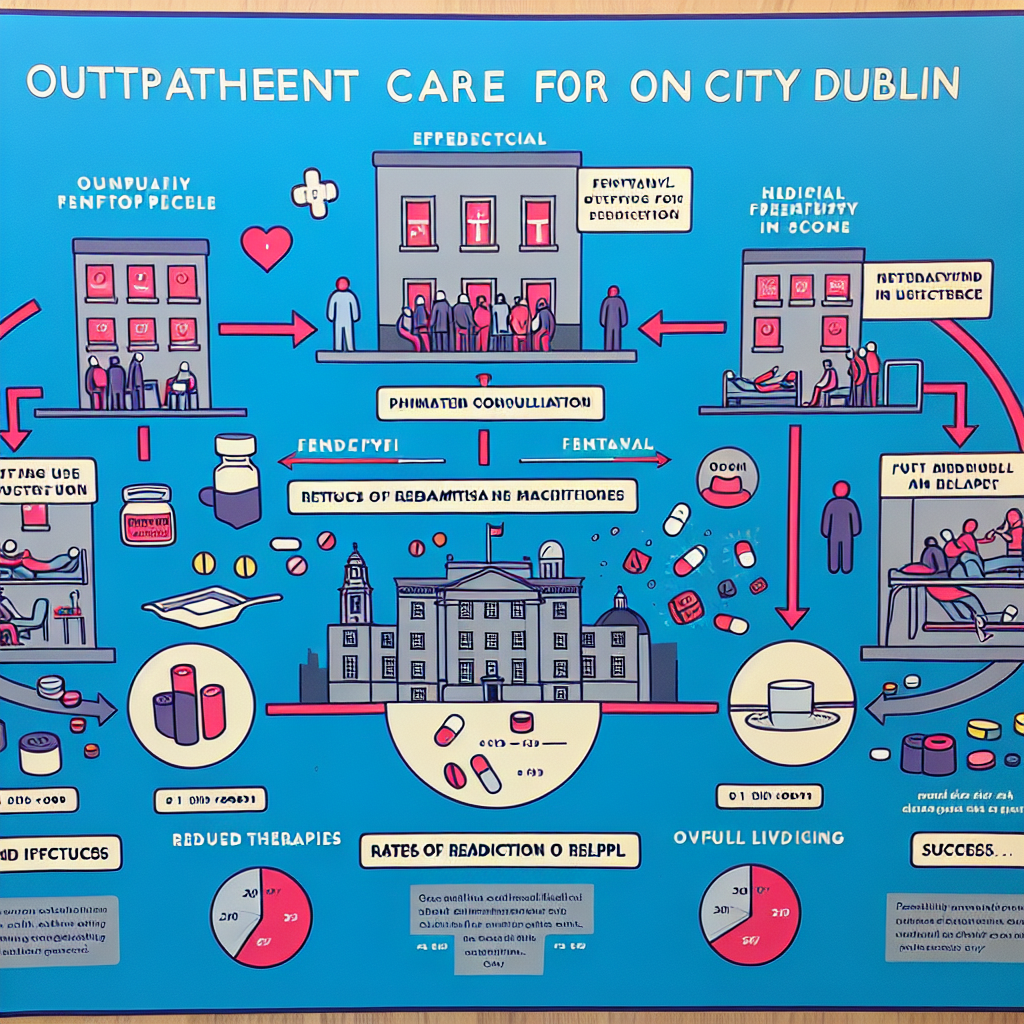-
Table of Contents
“Revitalize Recovery: Harnessing Healthy Living to Overcome Fentanyl Addiction”
Introduction

The impact of healthy living on fentanyl addiction recovery is profound and multifaceted, encompassing physical, psychological, and social dimensions. Healthy living, which includes balanced nutrition, regular physical activity, adequate sleep, and stress management, plays a crucial role in the recovery process. It helps to restore the body’s natural balance, improve mental health, and enhance overall well-being. By adopting a healthy lifestyle, individuals recovering from fentanyl addiction can strengthen their resilience, reduce cravings, and improve their ability to cope with the challenges of recovery. This holistic approach not only supports the detoxification process but also promotes long-term sobriety and a higher quality of life.
The Role of Nutrition in Fentanyl Addiction Recovery
The journey to recovery from fentanyl addiction is a challenging and multifaceted process, requiring a comprehensive approach that addresses both the physical and psychological aspects of dependency. One often overlooked but crucial component of this recovery process is nutrition. Proper nutrition can play a pivotal role in supporting the body and mind as they heal from the ravages of addiction, offering a foundation upon which other recovery efforts can build.
When an individual is addicted to fentanyl, their body undergoes significant stress and damage. Fentanyl, a powerful synthetic opioid, can wreak havoc on the body’s systems, leading to malnutrition, weakened immune function, and impaired organ function. As individuals begin their recovery journey, their bodies are in desperate need of nutrients to repair and rebuild. This is where the role of nutrition becomes paramount.
A balanced diet rich in vitamins, minerals, and other essential nutrients can help restore physical health. For instance, proteins are vital for repairing tissues and producing neurotransmitters that regulate mood and behavior. Carbohydrates provide the energy needed for daily activities and mental clarity, while healthy fats support brain function and reduce inflammation. Vitamins and minerals, such as vitamin C, vitamin D, and magnesium, play critical roles in immune function, bone health, and overall well-being.
Moreover, nutrition can significantly impact mental health, which is often compromised during addiction. The brain’s chemistry is altered by prolonged drug use, leading to mood swings, anxiety, and depression. Certain nutrients, such as omega-3 fatty acids found in fish, nuts, and seeds, have been shown to improve mood and cognitive function. Antioxidant-rich foods like berries and leafy greens can help reduce oxidative stress and inflammation in the brain, promoting mental clarity and emotional stability.
In addition to the physiological benefits, focusing on nutrition can also provide psychological support during recovery. The act of preparing and consuming healthy meals can become a form of self-care, fostering a sense of routine and normalcy. This can be particularly important for individuals who may have neglected their health and well-being during their addiction. Establishing regular meal times and making mindful food choices can instill a sense of control and accomplishment, which are crucial for building self-esteem and resilience.
Furthermore, the social aspect of nutrition should not be underestimated. Sharing meals with family, friends, or support groups can strengthen social bonds and provide a sense of community. These connections are vital for emotional support and can help individuals feel less isolated during their recovery journey. Cooking and eating together can also serve as a positive and healthy way to spend time, replacing the negative behaviors associated with addiction.
It is important to recognize that while nutrition is a powerful tool in the recovery process, it is not a standalone solution. Comprehensive addiction treatment should include medical care, counseling, and support groups to address the complex nature of addiction. However, integrating nutrition into a holistic recovery plan can enhance the effectiveness of these treatments and support long-term sobriety.
In conclusion, the role of nutrition in fentanyl addiction recovery cannot be overstated. By providing the body with the essential nutrients it needs to heal and thrive, individuals can improve their physical health, stabilize their mental well-being, and foster a sense of routine and community. As part of a comprehensive recovery plan, proper nutrition can be a beacon of hope, guiding individuals toward a healthier, more fulfilling life free from the grips of addiction.
Exercise as a Tool for Overcoming Fentanyl Dependency
Exercise can be a powerful tool in the journey to overcome fentanyl dependency, offering both physical and psychological benefits that can significantly aid in the recovery process. As individuals embark on the challenging path to break free from the grip of fentanyl addiction, incorporating regular physical activity into their daily routine can provide a sense of structure and purpose, which is often crucial for those in recovery. The endorphins released during exercise can act as natural painkillers and mood elevators, helping to alleviate some of the withdrawal symptoms and emotional distress that accompany the detoxification process.
Moreover, engaging in physical activity can help to rebuild the body’s strength and resilience, which are often compromised by prolonged substance abuse. Fentanyl, a potent synthetic opioid, can wreak havoc on the body, leading to muscle atrophy, weakened cardiovascular health, and a general decline in physical fitness. By participating in regular exercise, individuals can begin to restore their physical health, improving their overall well-being and increasing their energy levels. This renewed vitality can be instrumental in maintaining the motivation needed to stay committed to recovery.
In addition to the physical benefits, exercise can also play a crucial role in addressing the psychological aspects of addiction. Many individuals struggling with fentanyl dependency experience feelings of anxiety, depression, and low self-esteem. Exercise has been shown to reduce symptoms of anxiety and depression by promoting the release of neurotransmitters such as serotonin and dopamine, which are often depleted in those with substance use disorders. Furthermore, the sense of accomplishment that comes from setting and achieving fitness goals can boost self-esteem and provide a positive focus, diverting attention away from cravings and negative thought patterns.
The social aspect of exercise should not be overlooked either. Participating in group activities such as team sports, fitness classes, or running clubs can help individuals in recovery build a supportive network of peers who share similar goals and interests. This sense of community can be incredibly valuable, offering encouragement, accountability, and a sense of belonging that can counteract the isolation often felt during addiction. Additionally, forming new, healthy relationships can replace the social circles that may have been centered around substance use, further reinforcing a commitment to a drug-free lifestyle.
It is important to note that while exercise can be a beneficial component of fentanyl addiction recovery, it should be approached with caution and under the guidance of healthcare professionals. Individuals in recovery may have varying levels of physical fitness and health conditions that need to be considered when developing an exercise regimen. A tailored approach that takes into account the individual’s unique needs and limitations will ensure that the exercise program is both safe and effective.
In conclusion, exercise offers a multifaceted approach to overcoming fentanyl dependency, addressing both the physical and psychological challenges of recovery. By promoting physical health, enhancing mood, and fostering social connections, regular physical activity can provide a solid foundation for individuals striving to reclaim their lives from addiction. As part of a comprehensive recovery plan that includes medical treatment, counseling, and support, exercise can be a powerful ally in the journey towards lasting sobriety and a healthier, more fulfilling life.
Mindfulness and Meditation: Enhancing Recovery from Fentanyl Addiction
Mindfulness and meditation have emerged as powerful tools in the journey of recovery from fentanyl addiction, offering a beacon of hope and a pathway to healing. As individuals grapple with the physical and emotional toll of addiction, integrating these practices into their daily routines can significantly enhance their recovery process. The impact of healthy living, particularly through mindfulness and meditation, cannot be overstated, as it provides a holistic approach to overcoming the challenges associated with fentanyl addiction.
Mindfulness, the practice of being fully present and engaged in the moment, helps individuals develop a heightened awareness of their thoughts, feelings, and bodily sensations. This awareness is crucial for those recovering from fentanyl addiction, as it allows them to recognize and address triggers and cravings before they escalate. By cultivating a non-judgmental attitude towards their experiences, individuals can better manage stress and anxiety, which are often significant barriers to recovery. Moreover, mindfulness encourages a sense of self-compassion, enabling individuals to forgive themselves for past mistakes and focus on their journey towards healing.
Meditation, a practice closely related to mindfulness, involves training the mind to achieve a state of calm and clarity. For those recovering from fentanyl addiction, meditation can serve as a powerful tool to reduce stress, improve emotional regulation, and enhance overall well-being. Through regular meditation, individuals can develop a greater sense of inner peace and resilience, which are essential for navigating the ups and downs of recovery. Additionally, meditation has been shown to positively impact brain function, promoting neuroplasticity and aiding in the repair of neural pathways damaged by substance abuse.
The integration of mindfulness and meditation into a healthy living regimen offers numerous benefits that extend beyond the immediate recovery process. For instance, these practices can improve sleep quality, boost immune function, and reduce the risk of relapse. By fostering a sense of balance and harmony within the body and mind, mindfulness and meditation create a supportive environment for long-term recovery. Furthermore, these practices can enhance interpersonal relationships, as individuals become more attuned to their own needs and the needs of others, fostering empathy and understanding.
Incorporating mindfulness and meditation into daily life does not require significant time or resources, making it accessible to anyone committed to their recovery journey. Simple practices such as mindful breathing, body scans, and guided meditations can be easily integrated into daily routines. Over time, these practices can become second nature, providing a reliable source of comfort and stability. Support groups and therapy sessions that incorporate mindfulness and meditation can also offer valuable guidance and encouragement, helping individuals stay motivated and connected to their recovery goals.
The inspirational stories of those who have successfully integrated mindfulness and meditation into their recovery from fentanyl addiction serve as a testament to the transformative power of these practices. By embracing a holistic approach to healing, individuals can reclaim their lives and build a future free from the grip of addiction. The journey may be challenging, but with the support of mindfulness and meditation, it is possible to overcome the obstacles and emerge stronger and more resilient.
In conclusion, the impact of healthy living on fentanyl addiction recovery is profound, with mindfulness and meditation playing a pivotal role in enhancing the recovery process. By fostering self-awareness, emotional regulation, and inner peace, these practices offer a holistic approach to healing that supports long-term recovery. As individuals commit to their journey of recovery, mindfulness and meditation can provide the tools and inspiration needed to achieve lasting transformation and a brighter future.
The Importance of Sleep in Fentanyl Addiction Rehabilitation
Sleep is often an overlooked yet crucial component in the journey of fentanyl addiction recovery. As individuals navigate the challenging path to sobriety, the importance of restorative sleep cannot be overstated. It serves as a foundation for physical health, emotional stability, and cognitive function, all of which are essential for overcoming addiction. By understanding the profound impact of sleep on the rehabilitation process, individuals and their support networks can better appreciate its role and prioritize it accordingly.
During the initial stages of fentanyl addiction recovery, the body undergoes significant stress as it adjusts to the absence of the drug. This period, often marked by withdrawal symptoms, can be physically and emotionally taxing. Adequate sleep during this time is vital as it allows the body to repair and regenerate. Sleep facilitates the healing of tissues, the strengthening of the immune system, and the regulation of hormones, all of which are disrupted by prolonged drug use. By ensuring sufficient rest, individuals can better manage withdrawal symptoms and reduce the risk of relapse.
Moreover, sleep plays a critical role in emotional regulation, which is particularly important for those recovering from fentanyl addiction. The emotional rollercoaster that accompanies withdrawal and early recovery can be overwhelming. Sleep deprivation exacerbates feelings of anxiety, depression, and irritability, making it harder to cope with the emotional challenges of recovery. On the other hand, quality sleep helps stabilize mood, improve emotional resilience, and enhance overall mental well-being. This emotional stability is crucial for maintaining motivation and commitment to the recovery process.
Cognitive function is another area significantly impacted by sleep, and it is essential for effective addiction recovery. Fentanyl addiction often impairs cognitive abilities, including memory, attention, and decision-making skills. Sleep is fundamental for cognitive restoration, as it consolidates memories, processes information, and clears toxins from the brain. By prioritizing sleep, individuals can improve their cognitive function, making it easier to engage in therapy, learn new coping strategies, and make informed decisions about their recovery journey.
In addition to these physiological and psychological benefits, sleep also fosters a sense of routine and structure, which is beneficial for those in recovery. Establishing a regular sleep schedule can provide a sense of normalcy and predictability, helping individuals regain control over their lives. This routine can extend to other healthy habits, such as regular meals, exercise, and mindfulness practices, all of which contribute to a holistic approach to recovery.
Furthermore, the environment in which one sleeps can significantly influence the quality of rest. Creating a sleep-conducive environment involves minimizing distractions, maintaining a comfortable temperature, and ensuring a dark and quiet space. These adjustments can enhance sleep quality, making it easier for individuals to fall asleep and stay asleep throughout the night. Support from family and friends in creating and maintaining this environment can be invaluable.
In conclusion, the importance of sleep in fentanyl addiction rehabilitation cannot be underestimated. It is a cornerstone of physical healing, emotional stability, and cognitive function, all of which are essential for successful recovery. By prioritizing sleep and creating a supportive environment, individuals can enhance their ability to navigate the challenges of addiction recovery. This holistic approach not only aids in overcoming addiction but also lays the foundation for a healthier, more fulfilling life.
Q&A
1. **Question:** How does regular physical exercise impact fentanyl addiction recovery?
**Answer:** Regular physical exercise can help reduce cravings, improve mood, and enhance overall physical health, which supports the recovery process from fentanyl addiction.
2. **Question:** What role does a balanced diet play in the recovery from fentanyl addiction?
**Answer:** A balanced diet provides essential nutrients that can repair the body and brain, improve energy levels, and stabilize mood, aiding in the recovery from fentanyl addiction.
3. **Question:** How does adequate sleep contribute to the recovery process from fentanyl addiction?
**Answer:** Adequate sleep helps restore cognitive function, reduce stress, and improve emotional regulation, which are crucial for maintaining sobriety and overall well-being during fentanyl addiction recovery.
4. **Question:** In what ways can mindfulness and stress management techniques aid in fentanyl addiction recovery?
**Answer:** Mindfulness and stress management techniques can reduce anxiety, improve emotional control, and decrease the likelihood of relapse by helping individuals cope with triggers and stressors more effectively.
Conclusion
Healthy living significantly enhances fentanyl addiction recovery by improving physical health, stabilizing mental well-being, and fostering a supportive environment. Regular exercise, balanced nutrition, and adequate sleep help repair the body and reduce cravings. Mindfulness practices and stress management techniques mitigate anxiety and depression, common triggers for relapse. Social support from family, friends, and support groups provides essential emotional backing. Overall, integrating healthy living into recovery programs increases the likelihood of sustained sobriety and a better quality of life.



